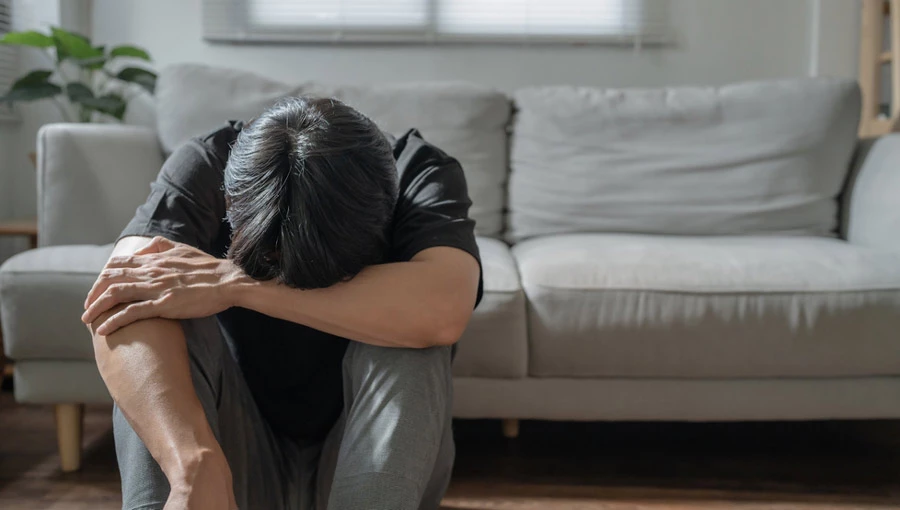Healing the Family Dynamic During Treatment
As much as we hate to think about the collateral damage that takes place as a result of substance abuse – many times, family members go through just as much pain as the actual user – if not more.
Having a family member who loves you dearly and must watch you go through the agony of addiction is every bit as hard for them – especially if they feel helpless in their ability to help you through the recovery process.
The good news is – at Catalina Behavioral Health, we have options that help family members during the addiction treatment programs we offer. If you’re suffering from drug addiction, or have an addicted family member, consider the information outlined in the following article, as it may help you mend your issues during the various treatment programs available to you through one of our many levels of care.
Let’s take a look at the specific elements involved between family members, the user, and the mental health and substance abuse treatment process. We’ll also touch on the family rehab programs available at Catalina and how to get effective support for your recovery with our services!
24 Hour Substance Abuse Rehab Hotline
Family Members: Frustration with Relapse and Continued Use
In many families affected by addiction, the inclusion of a close family member during the treatment process is as important as your one-on-one or group therapy. According to SAMHSA (the Substance Abuse and Mental Health Services Administration) drug and alcohol addiction impacts the family unit in many different ways – and impacts many different family members aside from the person having problems with drugs or alcohol.
The dynamic may be different between the addicted family members for each separate loved one – the impact hits differently for spouses, children, cousins, grandparents, and so on.
For those unfamiliar with the addiction treatment and recovery process, relapse is viewed in a negative light, often causing the individual in question to be viewed as a failure. This couldn’t be further from the truth. In fact, relapse is just as much a part of recovery as any other dynamic involved with the addiction treatment process.
Putting the Disease of Addiction in Context

Relapse should never be viewed as a blatant disregard for the steps you’ve taken or a lack of compassion for what your family members are going through. When a user relapses, the worst thing family members can say is, “How could you do this to us?” The individual is likely going through a great deal internally, and adding to the negative mindset is extremely detrimental to mental health.
There’s a great deal of anxiety, panic, and self-resent taking place internally during a relapse. And typically, there’s a specific journey that individuals take before arriving at this particular pitfall. Rarely does an addict ever just wake up and think, “I’m going to relapse today.” It takes a series of thought patterns and wrestling with oneself mentally until finally making the final slip.
Did you know that there is a mental relapse before a physical one? Being aware of these things can help family members move forward in the event of a subsequent relapse. In fact, family members becoming more instrumental in the healing process can make a world of difference. In the next sections, we’ll outline all of this to help you better incorporate family during your journey.
How Important Is Family During an Inpatient Rehab Program?
When someone you love is dealing with substance use disorder, the fight should never be theirs alone. It’s a disease that impacts every immediate member of the user’s circle, and it often takes family counseling to repair the dynamic that existed before the substance abuse and mental health decline.
Ultimately, the role of family is defined in two different roles. Consider each of the following positions the family must fill during recovery from substance use disorder:
- The Support. During the recovery process – especially after clients initially exit a rehab center, and during outpatient rehab. In the case of the latter, clients won’t have 24/7 monitoring or mental health services at all times. These priceless services at drug rehab centers play a significant role – so families must step in and fill the void.
- Family Counseling. The second role is the additional party in a family counseling program or other mental health services. This is an excellent precursor to preparing for outpatient rehab or learning about aftercare during a stay at a residential rehab center.
What are the Specific Advantages of Family Participation In the Recovery Process?

Family plays such a pivotal role in the recovery process, regardless of how stable or unstable the dynamic is. Granted, some situations are far rockier than others – but it’s almost a guarantee that there is some type of unhealthy exchange, whether you realize it or not.
Moving beyond the direct relationship and the healthy communication between family members, family rehab serves plenty of other purposes that bring positive benefits during substance abuse and mental health treatment.
When you involve the family in treatment during active counseling sessions or otherwise, the results typically include:
Greater Awareness of the Situation
It’s easy to look down on someone with a substance use disorder and carry around the mindset that “they should be strong enough to quit” or “it was their lack of responsibility or carelessness that led. to addiction.”
This normally isn’t the case, and it’s often this line of thinking that pushes families further apart when they should be coming together. Through family therapy sessions, your family members will learn how addiction impacts their loved ones and changes their very brain chemistry, just as the user learns how their addiction impacts the family.
Better Communication
Communication is key during the recovery process – and it isn’t just about simply talking with one another. Effective communication helps to accomplish goals and enhance productivity.
Mend Damaged Relationships
Relationships are often damaged to the point of no return during an addiction issue – but it doesn’t need to be that way.
Avoid Relapse
Having the company of family and a healthy outlet allows you to freely communicate your feelings about addiction. This, in turn, can help prevent relapses since you have an open ear that’s prepared to listen without judgment.
24 Hour Addiction Rehab Hotline
What to Expect from Family Inpatient and Outpatient Rehab
Our family rehab services are not much different than traditional rehab therapies in the sense that they consist of many different treatment modalities. During substance use disorder treatment for families, the structure of family services varies depending on the exact dynamic that’s being treated.
Addiction is often referred to as a ‘family disease,’ in that both the client and their other family members often experience heightened risks for trauma, codependency, and dysfunction.
Each different type of therapy aims to improve different areas of the family relationship, and includes things like:
- Individual therapy
- Group therapy with other families
- Private family group therapy
- Support groups
- Enrichment and educational workshops
What’s the Main Priority of Family Involvement During the Recovery Journey?

Several different motivations exist for family sessions when users seek treatment. However, it’s safe to assume that underneath the surface, the number one goal is repairing trust. Without trust, it’s difficult to work past any other challenges, as uncertainty and resentment may also sit in the back of your mind.
Although it doesn’t happen overnight, rebuilding trust with the help of a licensed clinical social worker is possible. In the section below, we’ve outlined the most important steps to repairing the trust factor after a bout with drug abuse. This can be used during a treatment program, or after inpatient rehab to improve family functioning.
The Most Important Steps for Rebuilding Trust Using a Family Program
The most important steps to rebuilding trust are no secret. It takes time and patience with attention to the most fundamental trust-building exercises. Use the following list as a guide to help you navigate the path back to trusting your family member.
- Constant Honesty and Transparency. This is somewhat of a no-brainer – obviously, you need a constant atmosphere of honesty and transparency. Because so many lies or transgressions took place during the addiction period, it’s important that family members are secure and comfortable with taking everything that’s said in confidence.
- Patience. This is probably the second most important element of reestablishing trust. As we stated above – nothing is prepared overnight. It takes patience on the part of all members of the family and not attempting to rush back into building the trust back for someone.
The user must understand that it will take a while for the family to trust again, just as the family must understand the user will slip and make mistakes.
- Consistent Progress. It’s understood that mistakes happen and change doesn’t come overnight – it’s important to demonstrate constant progress during this period. As slip-ups happen, it’s important to get back on the right track and not backpedal.
Strategies for Open Communication During a Family Program

When you communicate with someone regarding negative feelings or damaging events that took place, it’s easy to let the situation get out of hand as tempers flare. Remember – family programs are supposed to heal, not create additional hurt.
Keep in mind it may feel uncomfortable initially – openly talking about wounds and things that someone has done to hurt you. Trust the fact that it feels just as uncomfortable for them. Here are a few tips to help you move through the process more efficiently.
Using “I” Instead of “You”
When you use “you” statements during a conversation or talk therapy, people tend to get defensive as they take it as an attack or you place the blame on them. Use the following as an example:
Instead of this:
“You’re never on time when you’re drinking or doing drugs – you don’t have any consideration for anyone.”
Try this:
“It really hurts me that a lack of time has such a negative impact on our relationship.”
When you focus the attention on yourself, it leads to empathy instead of a defensive front, and the result is usually far more productive.
Express Empathy Without Enabling
Expressing empathy for a family member who is in recovery can go a long way for their mentality. In addition, finding common ground and showing them that you’re willing to be patient with them demonstrates that they still have support on their side.
People trust people who relate to them – showing disdain and resentment for them makes it difficult for them to trust you. This only further damages the relationship.
Create a Supportive Environment
Creating the most supportive environment possible is conducive to the overall recovery effort and mending relationships. This often means more than just being there when they need to talk. It takes a little effort, but the chances for success increase exponentially.
Who Does Substance Abuse Impact the Most?

When it comes to family therapy and substance abuse, there’s no family member who’s “more impacted” than another. If someone loves and cares about you, the damage you’re doing to yourself is causing great pain, stress, and other negative feelings that, without work, can eventually lead to irreparable damage.
However, during a family program for substance abuse, the mental wellness of children is often overlooked. Because they aren’t fully developed mentally and have a difficult time expressing how they feel, it’s important that you include children in any family program you’re attending.
At the minimum, finding them a one-on-one counselor for them to see privately can help them process the things that are going on, and help them understand that nothing about substance abuse is their fault.
Licensed Drug Addiction Treatment
Get Family Therapy and Substance Abuse Treatment at Catalina
If you’re interested in family programs for substance abuse, Catalina Behavioral Health offers a robust family therapy plan that includes various options for treatment participation of all ages. We offer unique one-on-one family programs and can incorporate your family therapy into a larger, group setting.
If you’d like more information about our family therapy options, or any of our other family programs, contact a member of our admissions team today. All calls are confidential, and we accept AHCCCS as well as most private health insurance carriers, so please reach out today to get options for support!







